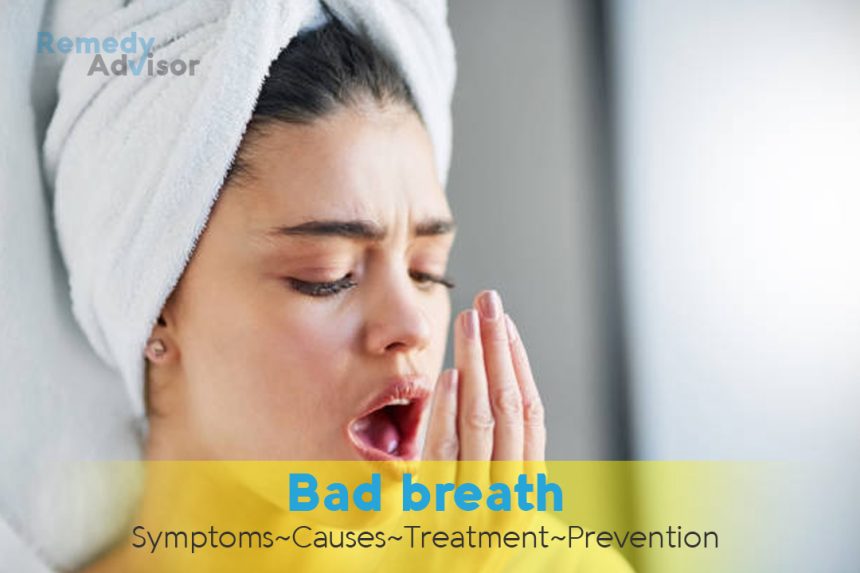What is it
Millions of Americans perhaps as many as 85 million have chronically bad breath, or halitosis. Concern about halitosis has given rise to a billion-dollar-a-year industry of products that are intended to eliminate or conceal mouth odor You can even take advantage of one of hundreds of “breath clinics” being offered all over the country . But the most effective steps involve simple oral hygiene.
Symptoms
- Exhaled breath has an unpleasant odor.
- Bad taste in the mouth.
- Bleeding gums.
What causes it
Bad breath has many causes, but often the underlying cause is the activity of bacteria in the mouth. Most cases of bad breath are due to the breakdown of food particles in and around your teeth, which can create foul-smelling gases. If you have healthy teeth and gums but still experience bad breath, it usually comes from the back region of the tongue, possibly because of postnasal drip to the tongue surface.
Periodontal disease (inflammation of the gums) can also cause bad breath, as can a dry mouth, which contributes to halitosis because saliva helps keep bacteria in check. This helps explain “morning breath,” since the mouth dries out during sleep. Mouth washes with a high alcohol content can also dry the mouth, allowing bacteria to thrive. And certain medical conditions and medications can cause chronic dry mouth, or xerostomia.
Halitosis can also be caused by certain respiratory or gastrointestinal disorders as well as diabetes mellitus, chronic sinusitis or bronchitis, a liver or kidney ailment, and emphysema.
Other contributing factors include smoking, alcoholic drinks, and such foods as garlic and onions, which contain volatile oils that are absorbed into your bloodstream carried to your lungs, and released in your breath.
What if you do nothing
Most cases of bad breath are temporary and if a particular food contributed to it, then the problem will clear up when you stop eating that food. But if you often have bad breath, you’ll need to take stronger measures like the self-care remedies below.
Home remedies
Mints and mouthwashes will only temporary quell bad breath; they cannot cure the underlying problem. Instead take these measures.
Brush more frequently
Brushing your teeth after each meal will improve most cases of mild bad breath. When you’re finished with your teeth, gently scrub the roof of your mouth and your gums.
Clean your tongue
This can be one of the most effective steps for eliminating bad breath. The tongue’s microscopic hairs harbor plaque and food particles that can give rise to breath fouling bacteria. In fact, the tongue can become coated with bacteria that ferment proteins and give off unpleasant odors. Therefore, brush the surface of the tongue when you finish with your teeth in order to dislodge the culprits, or else use a special plastic tongue scraper, sold in most pharmacies.
Choose a brush with soft bristles and stroke from the rear of the throat (as far back as you can go without gagging) and gently brush out- ward. For better results, wet your brush with an effective mouthwash.
Floss
Clean the spaces between your teeth at least once a day.
Get regular dental checkups
Teeth should be examined and cleaned occasionally from your dental hygienist.
Take care of dentures
Soak your dentures overnight in an antiseptic solution.
If you smoke, quit
In addition to being linked with lung and other cancers, tobacco is a major cause of bad breath.
Drink more water
Keeping your mouth moist will help disperse the bacteria living there. Drink at least eight glasses of water daily.
Avoid foods that trigger bad breath
There are many common spices and foods that can cause bad breath. Obvious culprits include anchovies, garlic, onions, and anything containing alcohol.
Prevention
Follow the measures listed above.







